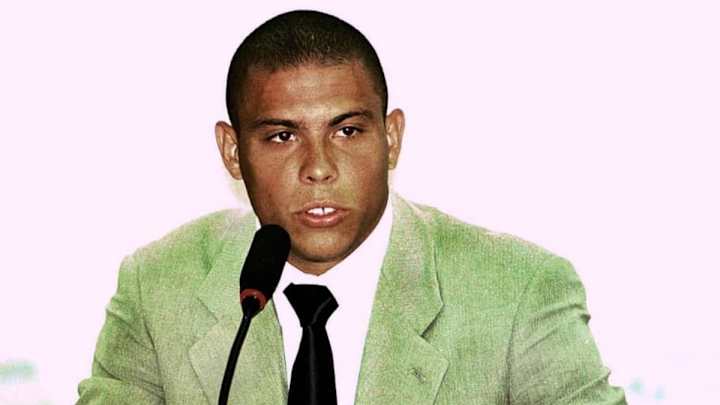Ronaldo's 1998 Seizure & World Cup Final Appearance Remains One of Football's Greatest Mysteries

Genuine, unanswered and impenetrable mysteries are rare in modern football: rare, in fact, in modern life. Little is left to the imagination of an avid celebrity follower, with daily updates on everything from breakfast to botox appearing in news feeds around the world. In many ways, we know too much.
On a football pitch, there’s virtually nothing the TV viewer doesn’t know. This, incidentally, has been the predominant charge levelled at VAR across Europe this season. While those on television get delightful clarity from their sofas, stadium-goers tend to be left second-guessing referees until play is eventually resumed.
(Above: Presenting the Ballon d'Or Awards in 2017)
It is unsurprising, then, that very few footballing mysteries endure. One does, however, and Ronaldo’s brief absence from Brazil’s World Cup final team sheet in 1998 is as famous as it is shrouded in ambiguity.
Hours before the outright tournament favourites were ready to take on the hosts - a final that would see Ballon d’Or winner take on Ballon d’Or third place - the tournament’s top scorer was rushed to hospital with what, to this day, has only ever been described as a ‘seizure’. A nation notorious for its deifying of individual players went into a predictable meltdown; this was not supposed to happen.
Such individual worship is probably why Ronaldo ever appeared in the starting lineup at all. Many have questioned the protection a 21-year-old was afforded by his management team, allowing him to play hours after he had been ‘foaming from the mouth’ in his hotel room.
Brazil, of course, lost the final 3-0, and Ronaldo was nothing more than a ghostly parody of the explosive genius fans had become accustomed to. Since then, congressional investigations have only revealed symptomatic details that largely serve to confuse the event further. The striker slept for the majority of the day, interrupted once by a fit that, described by teammates, included ‘flailing arms’ and whole-body convulsions.
(Above: Ronaldo answers questions on his 1998 illness in 2006)
This only made Ronaldo’s inclusion in the team all the more baffling and, of course, conspiracy theories abounded. Avid football fans will be well aware of the accusations levelled at the Brazilian team’s sponsor Nike, who it was assumed on little more than guesswork had forced the young man to play despite medical recommendation to the contrary. But it seems unlikely that anyone would have to force an aspiring superstar, aged just 21, to play in his first ever World Cup final.
Ronaldo’s famous statement years later only strengthens a case against the CBF (Brazilian Football Confederation), as the striker ominously reflected via BBC Sport: "We lost the World Cup but I won another cup- my life." This also allowed tin hat lunatics to formulate fresh theories about a potential poisoning the night before the final.
It is almost certain that the fog from this most high profile of sporting anomalies will never dissipate. Accusations against various parties will be permanently tinged with the taste of bias until facts are solidified. At the time, of course, this felt a disastrous injustice for Brazilian fans. But the great man would take his next opportunity with both hands in 2002, forgetting everything that came with one of football’s greatest mysteries and top scoring in arguably the finest World Cup team of all time.
